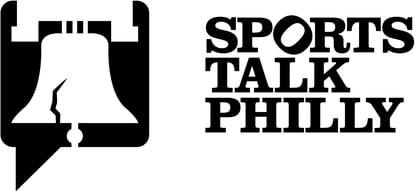By: Matt Alberston, Historical Columnist
The Phillies finished the 1961 season dead last in the National League standings with a 47-107 record, 46 games out of first place. It was their fourth straight year in the cellar. The club improved drastically in 1962 and 1963, finishing with 81-80 and 87-75 records respectively. They needed a pitcher to help them climb further in the standings. In December 1963, Jim Bunning came to the Phillies in a trade with the Detroit Tigers. He won 118 games in nine years with the Tigers, threw a no-hitter in 1958 against the Boston Red Sox, and was a five-time all-star. Bunning was a bonafide front-end starter who could solidify the Phillies rotation and instantly provided the franchise credibility.
By June 21, 1964, Father's Day, the Phillies topped the National League standings with a 36-23 record. On Sunday June 21, the Phillies had a doubleheader with the New York Mets at Shea Stadium in New York and Bunning was scheduled to start the first game against Tracy Stallard.
The Phillies opened the first inning with a leadoff walk by Johnny Briggs who moved to second on a sacrifice bunt by first baseman John Herrnstein. Rookie sensation Dick Allen singled and scored Briggs. It was the only run the Phillies would need as he sent the Mets down in order. The Phillies added another run in the second and Bunning repeated his work from the 1st inning.
Mets pitcher Tracy Stallard dominated the Philadelphia hitters for the next three innings, allowing only a walk and a single. It seemed as if both pitchers found a groove that would be difficult for hitters to buck. While Stallard was pitching well, spectators at Shea began to take notice that Bunning was perfect through four innings. The Phillies pitcher was in familiar territory; weeks earlier on May 18, Bunning threw a one hit shutout against the Houston Colt 45's. That lone hit came in the 5th inning when Jim Wynn led off with a single to left field. Bunning nearly lost his bid at perfection again during the 5th inning at Shea.
Joe Christopher popped up for the first out of the inning. Mets catcher Jesse Gonder hit a first-pitch change-up sharply to the hole between first and second. Phillies second baseman Tony Taylor dove for the ball, knocked it down, and fired the ball to first base from his knees for the second out of the inning. Hawk Taylor grounded out the Dick Allen at third base for the final out of the inning. Bunning was perfect through five. Between innings, Bunning was talkative and eased the increasing pressure on his teammates.
The Phillies opened up their lead over the Mets in the 6th. Johnny Callison homered to right to start the inning. After catcher Gus Triandos singled in a run, Bunning joined in the hit parade with a two-run double to center field.
The Phillies hurler continued his impressive pace in the late innings and did not let a ball out of the infield after Mets shortstop Charlie Smith flied out to center. Smith led off the bottom of the 9th inning and popped out in foul territory. At this point, Mets skipper Casey Stengel sent up power hitter George Altman to the plate to pinch hit for third baseman Amado Samuel. Bunning summoned his batterymate Triandos to the mound and asked Triandos to tell him a joke in order to keep him relaxed. The Phillies catcher laughed and trotted back to his position behind home plate and Bunning subsequently struck out Altman.
Stengel sent up left-handed John Stephenson to pinch hit for Mets reliever Tom Sturdivant. Stephenson swung at the first pitch and stared at the second. With the count 0-2, Bunning tossed two balls outside the struck zone. With the count 2-2, Bunning threw a high curveball which Stephenson waived at for Bunning's tenth strikeout of the day. Jim Bunning, the father of seven children, had achieved perfection on Father's Day 1964 in a mere 86 pitches. It was the first perfect game recorded in the National League since John Montgomery Ward's 1880 perfect game against the Buffalo Bisons.

